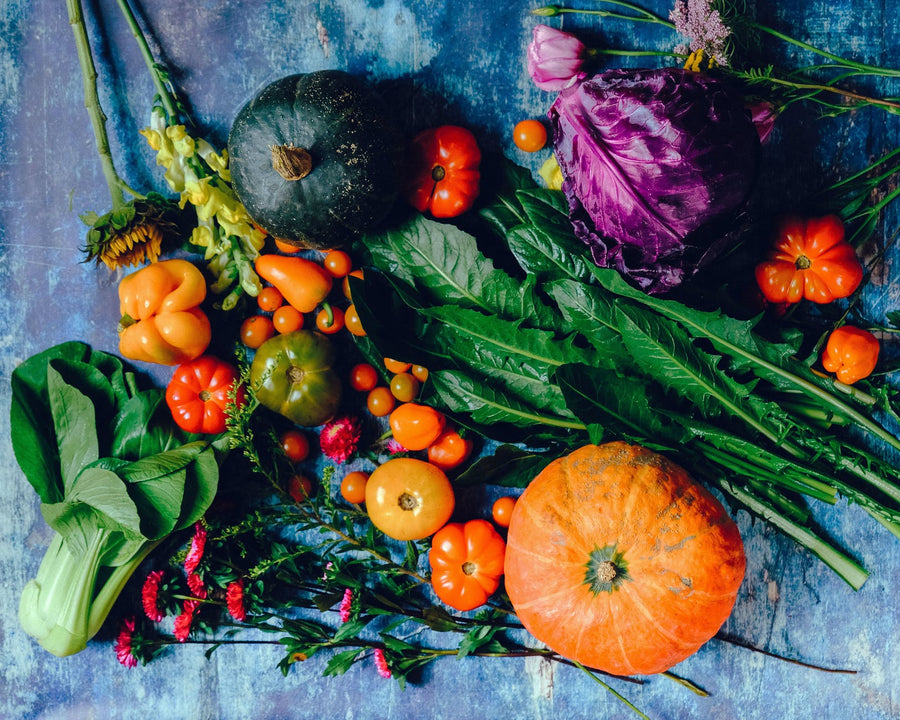Iron Supplements for Vegetarians: What to Know

Iron is an essential nutrient that is most commonly found in red meat. Can vegetarians still get adequate iron by consuming an iron vitamin? We’ve answered common questions to help you determine if you’re consuming enough iron to prevent iron deficiency and associated anemia.
By Dr. Kenosha Gleaton, OBGYN
Iron deficiency is one of the most common nutritional deficiencies in the United States. [1] The food we eat is the primary source of all of our vitamins and minerals, so if one food group is missing from your diet, it’s vital to take different supplements to avoid any nutritional deficiencies. So who needs to take iron tablets, and what's a safe amount?
What Is Iron?
Iron is an essential mineral that the body uses for the necessary growth and development of hemoglobin, hormones, and myoglobin. [2] The main job of iron in our bodies is to carry oxygen to various tissues and organs. When this job is compromised by low iron levels, there can be various negative effects on the body. [2]
The Importance of Iron
When you’re iron deficient you may notice fatigue, shortness of breath, headaches, dizziness, brittle hair, skin, and nails, tongue swelling, and more. [3] When iron levels become critically low, iron deficiency anemia develops, due to an insufficient number of red blood cells. Learn how to increase iron levels quickly.
Signs and Symptoms of Iron Deficiency Anemia
Signs of anemia can be nonspecific, subtle, and often difficult to recognize. The most commonly associated symptoms include [2-3]:
- Weakness
- Fatigue
- Shortness of breath
- Headaches
- Dizziness
- Brittle or damaged hair, skin, nails
- Tongue swelling
- Cold
- Cravings for ice or other mineral-rich substances
- Brain fog
- Weakened immune system
Iron Deficiency Anemia During Pregnancy
Iron deficiency anemia during pregnancy has been associated with an increased risk of low birth weight, preterm delivery, and perinatal mortality. [4] In addition, there may be an association between maternal iron deficiency anemia and postpartum depression, with poor mental and psychomotor performance testing in offspring. [4] Read what foods are high in iron for pregnancy.
Iron Intake on a Vegetarian Diet
You might be thinking “iron isn’t just found in meat,” and you’re right! There is a good amount of iron found in vegetables, seeds, and other plant-based foods; however, the way our bodies absorb iron is what puts vegetarians more at risk for iron deficiency. [1-2] While meat and plants both contain iron, our bodies absorb iron found in meat more efficiently than the iron found in plants. Some common vegetarian substitutes (like soy) can even make this absorption more difficult for the body.
Foods that are good sources of iron for vegetarians include plant-based foods such as legumes, seeds, nuts, dried fruit, green leafy vegetables, and whole grains. [1-2]
Iron Supplements for Vegetarians
Consuming a vegetarian diet undoubtedly puts some individuals at more risk for iron deficiency. When you’re not consuming red meat in your diet, you’re avoiding one of the most iron-rich foods there is, so taking a regular iron vitamin is a great way to replenish your iron levels and avoid iron deficiency. [1-2] There are also many benefits to taking an iron capsule besides avoiding deficiency, including more energy and decreased risk of ovulatory infertility. [5] Read up on the types of iron supplements.
Daily Iron Needs
Daily iron needs vary from person to person and are influenced by age, sex, lifestyle, and health conditions. Menstruating women, ages of 18-50, need about 18 mg of iron per day, whereas men and non-menstruating women in this age group only need about eight mg. [2] If you’re pregnant, breastfeeding, an avid athlete or runner, or have certain medical conditions, you may require more iron. [2] As always, we recommend speaking to your doctor about any concerns regarding nutritional deficiencies and supplementation.
Iron is an essential nutrient for the body that carries oxygen to different tissues and can impact our overall health, energy levels, and even fertility. [1-3] Vegetarians and pregnant or breastfeeding women are high risk for becoming iron deficient. [1-3] If you’re worried about your iron intake, you should consider using an oral iron supplement to complement your diet. Check out Natalist iron tablets that are vegan, low toxicity, gluten-free, soy-free, and doctor-approved. You can also find iron in several of our multivitamin supplements, including our prenatal gummies, for those interested in a more comprehensive prenatal vitamin routine.
References:
- Jimenez K, Kulnigg-Dabsch S, Gasche C. Management of Iron Deficiency Anemia. Gastroenterol Hepatol (N Y). 2015;11(4):241-250.
- Iron. Fact Sheet for Consumers. NIH. August 2023. https://ods.od.nih.gov/factsheets/Iron-Consumer/
- Iron deficiency anemia. Mayo Clinic. Jan 2022. https://www.mayoclinic.org/diseases-conditions/iron-deficiency-anemia/symptoms-causes/syc-20355034
- Anemia in Pregnancy: ACOG Practice Bulletin, Number 233. Obstet Gynecol. 2021;138(2):e55-e64. doi:10.1097/AOG.0000000000004477
- Chavarro JE, Rich-Edwards JW, Rosner BA, Willett WC. Iron intake and risk of ovulatory infertility. Obstet Gynecol. 2006;108(5):1145-1152. doi:10.1097/01.AOG.0000238333.37423.a
Originally published 07/31/2020. Updated for accuracy and relevancy on 01/11/2024
Dr. Kenosha Gleaton is board-certified in gynecology and obstetrics and is the Medical Advisor of Natalist. She received her MD from MUSC and completed her residency at Carolinas Medical Center in Charlotte, NC.
Dr. Gleaton is passionate about women, health equity, and mentoring. She is the CEO of The EpiCentre, an OBGYN spa-like practice, and is a Clinical faculty member of Charleston Southern University. She is also a member of the American College of Obstetrics & Gynecology, the American Association of Gynecologic Laparoscopists, and the American Association of Professional Women
Reach Out, We're Here
Have questions about your order or products? For the speediest answer, check out our FAQ section. Need something else? Come find us below.
Please keep in mind our regular business hours; Monday-Friday, 9am-5pm CT.
Customer Support
support@natalist.com
Press Inquiries
media@everlyhealth.com
Business & Partnerships
team@natalist.com
Affiliates + Influencers
team@natalist.com
Job Openings
Careers Page
























